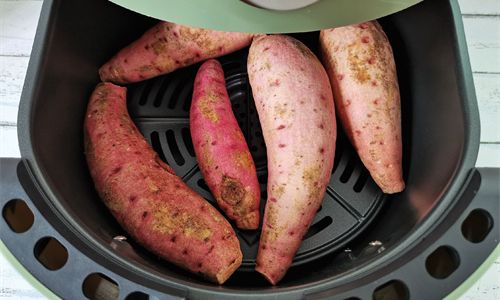Table of content
Introduction
Lemons, known for their vibrant yellow hue, refreshing scent, and tangy taste, are a staple in many kitchens worldwide. Whether used for juicing, zesting, or adding a zesty kick to dishes, lemons offer a multitude of culinary and health benefits. However, to fully harness their potential, it’s crucial to know how to store lemons correctly. Proper storage not only preserves their freshness and flavor but also extends their shelf life, ensuring you can enjoy their benefits for longer. This guide delves into the various methods for storing lemons, the factors that influence their shelf life, and tips for maximizing their use.

Understanding Lemon Storage Basics
Before diving into specific storage techniques, it’s essential to understand the basics of lemon preservation. Lemons, like most citrus fruits, are highly perishable and can quickly deteriorate if not stored properly. The key to successful lemon storage lies in maintaining an optimal environment that minimizes moisture loss, slows down oxidation, and prevents microbial growth.
Factors Affecting Lemon Shelf Life
-
Temperature: Lemons prefer cool temperatures but should not be exposed to freezing conditions, which can damage their cells and alter their texture.
-
Humidity: Maintaining a moderate humidity level helps prevent the fruit from drying out. Too much moisture, however, can promote mold growth.
-
Oxygen Exposure: Limiting oxygen exposure slows down the oxidation process, which leads to discoloration and loss of firmness.
-
Handling: Rough handling can bruise the fruit, accelerating spoilage.
-
Variety: Different lemon varieties may have slightly different storage requirements. Common types include Eureka, Lisbon, and Meyer lemons.
General Storage Methods
Refrigeration
For most households, refrigerating lemons is the simplest and most effective method of preservation. Here’s how to do it right:
-
Whole Lemons: Place whole, unwashed lemons in an airtight container or a plastic bag with the top slightly open to allow for some air circulation. Avoid sealing the bag tightly, as this could trap moisture and promote mold.
-
Wrapped in Paper Towels: An alternative is to wrap each lemon individually in paper towels before placing them in a plastic bag or container. This helps absorb excess moisture.

-
Crisper Drawer: The crisper drawer in your refrigerator, designed to maintain higher humidity levels, is an ideal spot for storing lemons.
-
Duration: Properly refrigerated lemons can last up to four weeks.
Room Temperature Storage
If you prefer to keep your lemons at room temperature, especially if you use them frequently, there are a few guidelines to follow:
-
Cool, Dark Place: Store lemons in a cool, dark corner of your kitchen or pantry. Direct sunlight and heat can accelerate spoilage.
-
Ventilation: Ensure the storage area is well-ventilated to prevent moisture build-up.
-
Duration: At room temperature, lemons typically last one to two weeks.
Freezing Lemons
For long-term storage, freezing is an excellent option. While frozen lemons won’t have the same texture as fresh ones, their juice and zest can still be used in cooking and baking.
-
Juicing: Squeeze the lemon juice into ice cube trays and freeze. Once solid, transfer the cubes to a freezer bag.
-
Zesting: Zest the lemon peel and store it in an airtight container in the freezer.

-
Whole Lemons: Whole lemons can be frozen, but they may become mushy upon thawing. To use, simply grate the frozen fruit for zest or allow it to thaw slightly before juicing.
-
Duration: Frozen lemons can be kept for up to six months.
Drying Lemons
Dried lemon peels and slices can be used as a flavorful addition to teas, baked goods, and marinades.
-
Thin Slices: Cut the lemon into thin slices and remove any seeds.
-
Dehydrator or Oven: Use a food dehydrator or an oven set to a very low temperature (around 150°F or 65°C) to dry the slices. This can take several hours to a day, depending on the method and thickness of the slices.
-
Storage: Store dried lemon slices in an airtight container in a cool, dark place. They can last for several months.
Special Storage Techniques
Preserving Lemon Peel
Lemon peel, rich in essential oils and flavor, can be preserved separately for later use.
-
Cleaning: Wash the lemon thoroughly and scrub it with a vegetable brush to remove any wax or dirt.
-
Zesting: Use a zester or sharp knife to remove the outermost layer of the peel in thin strips. Avoid the white pith, which can be bitter.

-
Drying: Dry the zest using a dehydrator, oven, or air-dry it on a baking sheet.
-
Storage: Store dried zest in an airtight container in a cool, dark place. It can be kept for several months.
Canning Lemon Juice
Canning lemon juice is a great way to preserve large quantities for long-term use.
-
Sterilizing Jars: Ensure your jars and lids are sterile by boiling them for a few minutes.
-
Juicing and Bottling: Squeeze fresh lemon juice and pour it into the sterile jars, leaving some headspace.
-
Water Bath Canning: Process the jars in a boiling water bath for about 10 minutes to ensure they are sealed and sterile.
-
Cooling: Allow the jars to cool completely before storing them in a cool, dark place. Properly canned lemon juice can last for up to a year.
Maximizing Lemon Use
To get the most out of your lemons, consider these tips:
-
Plan Ahead: Know how you plan to use your lemons before storing them. This will help you decide the best storage method.

-
Portioning: If you only need small amounts of lemon juice or zest, consider portioning the fruit before storing it. This reduces waste and makes it easier to use.
-
Freezing in Useful Portions: Freeze lemon juice in ice cube trays or small containers that match the portions you typically use.
-
Creative Uses: Explore different ways to use lemons, such as making lemonade, marinades, or even cleaning solutions.
-
Composting: If lemons do spoil, they can be composted, turning waste into valuable nutrient-rich soil.
Conclusion
Storing lemons properly is a simple yet crucial step in ensuring you can enjoy their fresh, tangy flavor whenever you need it. By understanding the factors that affect their shelf life and choosing the right storage method for your needs, you can keep lemons fresh and ready to use for weeks or even months. Whether you prefer refrigerating, freezing, drying, or canning, there’s a method that suits your lifestyle and culinary preferences. With these guidelines, you’ll never be short of lemons for your favorite recipes and drinks again. Happy storing, and happy cooking!






0 comments